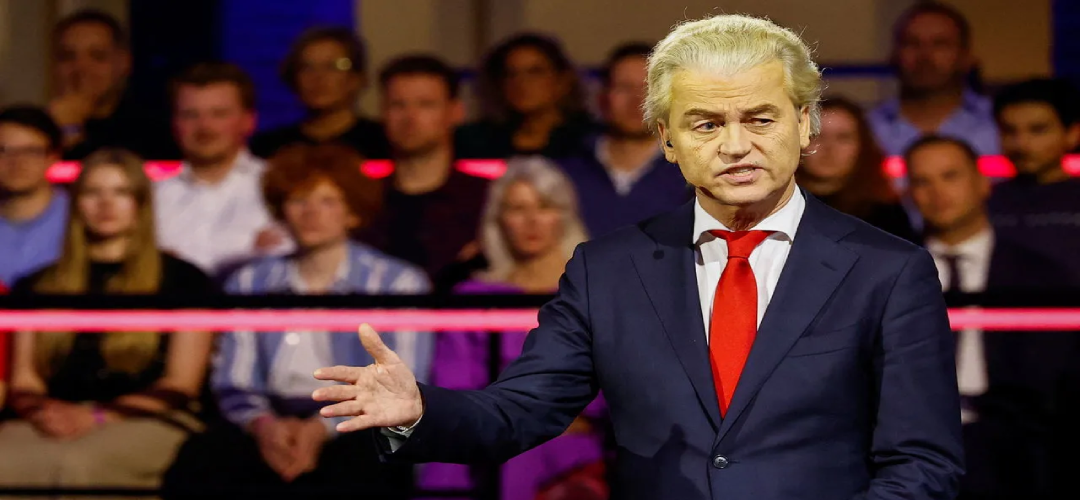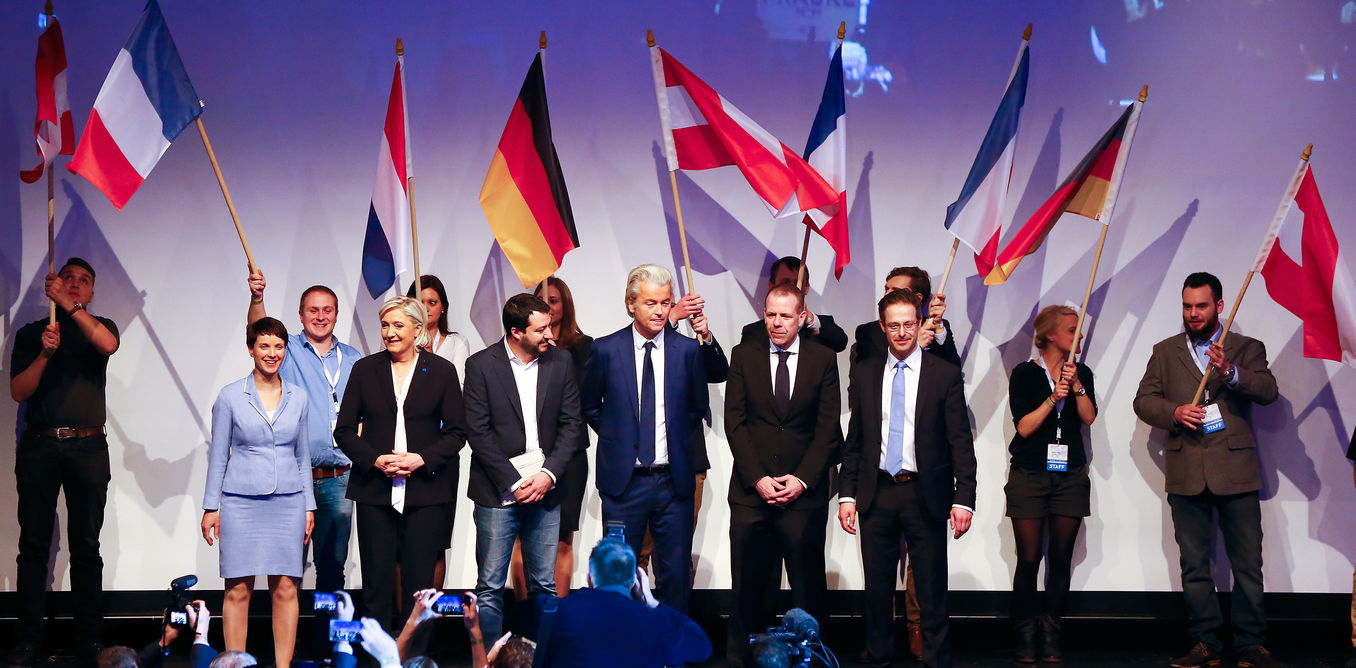A Hard Right Turn
December 2, 2023 | Expert Insights

The Netherlands, long regarded as a bastion of liberal democracy and European cooperation, was sent into shockwaves on November 22, 2023, when anti-Islam populist Geert Wilders' Party for Freedom (PVV) emerged as the largest single party in the country's parliamentary elections.
The PVV's unexpected victory in the November 2023 elections sent shockwaves through the Dutch political landscape. With 37 seats in the 150-seat parliament, the PVV became the largest single bloc, signalling a significant shift in Dutch politics.
This unexpected outcome sparked intense speculation about the future of Dutch politics and its potential impact on the broader European landscape.
Background
The Dutch political scene has been in a state of flux since the collapse of Prime Minister Mark Rutte's coalition government in January 2023. This marked the fourth time the country had gone to the polls in just four years, highlighting the growing instability and discontent in the country’s polity. At the heart of the political turmoil lay the governing coalition's perceived inability to address the pressing concerns of the Dutch people. The COVID-19 pandemic had exacerbated existing social and economic inequalities, while a series of scandals involving government officials eroded public trust in the traditional parties.
Migrants remain a serious issue. In 2022, the Netherlands received over 4 lakh legal migrants, mostly from Ukraine, while over 36,000 applied for asylum, mostly from developing countries. For a country with a population of just about 18 million, such a large number of migrants can cause disruptions.
The rise of Geert Wilders' far-right Party for Freedom (PVV) reflected this growing discontent. Wilders' populist rhetoric, which focused on anti-immigration sentiments, Euroscepticism, and a strong sense of Dutch nationalism, resonated with a segment of the population that felt left behind by the country's rapid social and cultural changes.

Analysis
Wilders' victory raised concerns about the future direction of the Netherlands, particularly his Eurosceptic stance and his promises to implement strict immigration controls and withdraw the country from the EU. His anti-Islam rhetoric also sparked fears of rising intolerance and discrimination in Dutch society.
The formation of a new government remained uncertain as Wilders faced challenges finding coalition partners. Mainstream parties ruled out cooperating with him due to his extreme views, forcing him to seek alliances among smaller right-wing parties. This task was likely to prove difficult given their ideological differences.
The VVD, the traditionally dominant party in Dutch politics, has ruled out joining Wilders-led government, citing his extreme views. Other potential coalition partners, such as the centre-left Labour Party and the green-left Groen Links, have also expressed reservations about working with Wilders.
The Dutch political landscape found itself at a crossroads, with the future of the country's political direction hanging in the balance. The ability of Wilders to form a government and implement his policies would have significant ramifications for the Netherlands, its relationship with the EU, and the broader European political landscape.
Wilders has been a vocal critic of the EU for many years, accusing it of being undemocratic, bureaucratic, and threatening Dutch sovereignty. He has pledged to hold a referendum on Dutch membership in the EU, a move that could have far-reaching consequences for the bloc's future. If the Dutch were to vote to leave, it would be the first time a member state has departed since the UK's Brexit vote in 2016.
Wilders' victory has heightened concerns about the potential for a domino effect of anti-EU sentiment across Europe. Other far-right populist movements in countries such as France, Italy, and Germany have already expressed support for Wilders' goals. EU leaders are worried that a PVV-led government in the Netherlands could embolden these other movements and lead to a wave of Eurosceptic sentiment across the continent. This could threaten the EU's unity and cohesion, making it more difficult for the bloc to address common challenges such as economic inequality, migration, and climate change.
The outcome of Wilders' referendum campaign and the future of the EU remain uncertain. However, there is no doubt that Wilders' rise to prominence has raised the stakes for the bloc and its future direction. The EU will need to find ways to address the concerns of its citizens and rebuild public trust to prevent further erosion of its unity and cohesion.
Assessment
- Forming a new government is likely to be a protracted and challenging process, with the outcome uncertain. The Netherlands' political future hangs in the balance, with the potential for either a radical shift towards populism and nationalism or a return to stability under a more moderate coalition.
- The EU is at a crossroads, facing significant internal and external challenges. The rise of nationalism and Euroscepticism and ongoing economic and social issues pose a serious threat to the bloc's unity and stability.
- The EU must find a way to address these challenges and rebuild public trust if it is to remain a viable force in the global arena. The Netherlands is a founding member of the EU and has played a key role in the bloc's development. However, the rise of Wilders and the PVV has raised questions about the country's future commitment to the EU project. If the Dutch were to vote to leave, it would be a major setback for the EU and could have a domino effect on other member states.








Comments